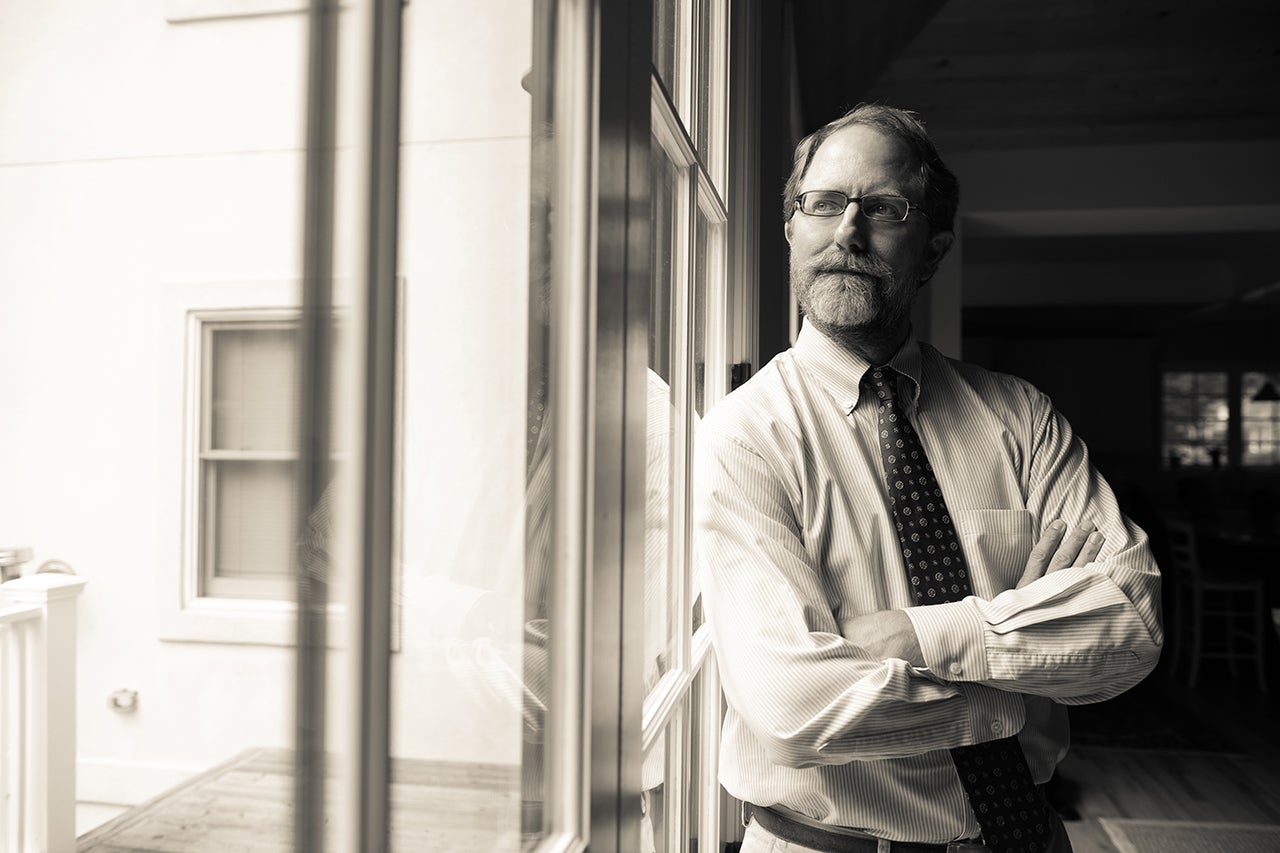The College of Charleston has named alumnus Wood Marchant ’89 as the new director of the recently launched Collegiate Recovery Program (CRP). Planning for the CRP began last year, and regular meetings began this fall to support students recovering from addiction.
Marchant comes to the College of Charleston from the Medical University of South Carolina where he was a clinical instructor at the Center for Drug and Alcohol Programs since May 2013. Prior to that, he worked at the Charleston Center as a clinical counselor in the Transitional Care Unit.
The Collegiate Recovery Program is designed to provide a structured, healthy community where students recovering from substance and addictive disorders can thrive academically and socially while actively pursuing their recovery. The program also provides students an opportunity to bond together in an alcohol-free and drug-free environment. The program also has a broad educational component. The campus community will be invited to programs that focus on understanding the various forms of addiction and the different paths of recovery.
“My goal is to be able to help the sober student strengthen their recovery program while becoming the best student they can be towards becoming the best version of themselves they can be,” says Marchant.
RELATED: Read more about the development of the College’s Collegiate Recovery Program.
The College of Charleston is the first university in South Carolina to start such a program.
“For students who have had the courage to enter treatment and the strength to continue on that journey, this program provides physical and psychological space for students to make deep connections with other students and professionals who understand their journey,” says Executive Vice President for Student Affairs Alicia Caudill.
A recent study from the National Center on Addiction and Substance Abuse estimates that around 21 percent of college students nationwide meet the medical criteria for substance abuse or dependence.
“The College’s CRP will help the sober student, whatever age they are, grow as a recovering person and student while learning to live a new way of life in what could be a challenging environment,” says Marchant. “Through the traditional recovery principles of honesty, open-mindedness and willingness, I want to help our students thrive and give back to the campus and local community.”





